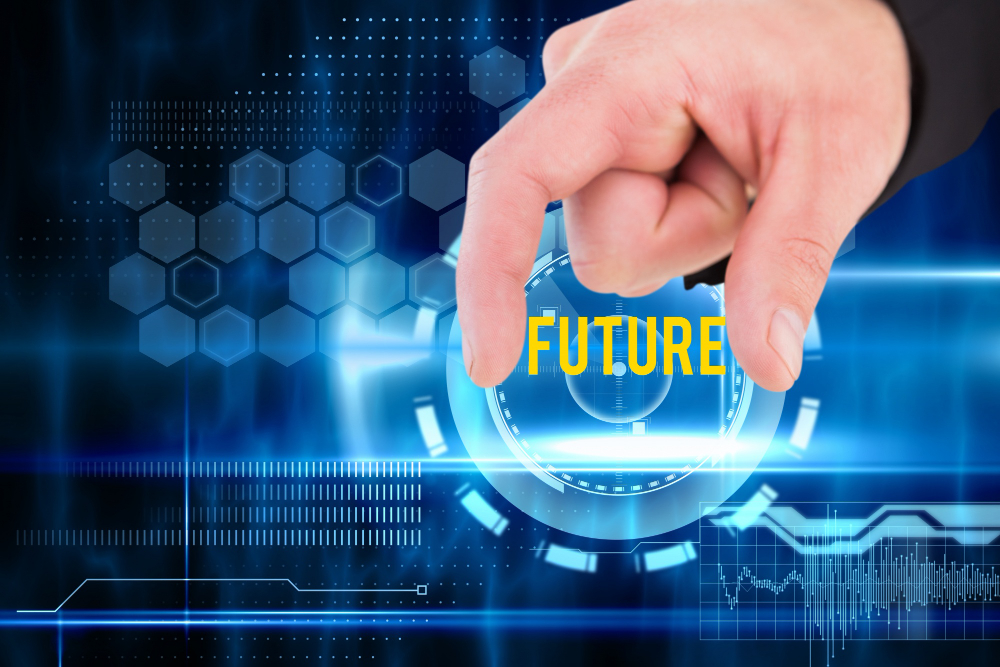The tech industry never sleeps and is the dynamo driving continuous innovation, shaping a future rich with opportunities yet to be seized. As a DevOps development company, Relevant Software expertly bridges the gap between the latest trends in development and operations to foster agile environments where innovative products evolve rapidly, expanding the boundaries of what is possible.
In this post, we’ll explore the predictions and trends that sketch the future trajectory of the tech industry as a whole and software development in particular.
1. Hyperautomation
If we take automation as we know it and add robotics process automation (RPA), artificial intelligence (AI), and machine learning (ML), we will get hyperautomation – the latest strategic technology that allows end-to-end automation. Using these cognitive technologies, hyperautomation drives more adaptability and flexibility for businesses to thrive in dynamic markets. It addresses issues of unstructured data helping companies achieve process automation from start to finish.
2. Sustainable Tech
As the calls to address climate change intensify, the tech industry doesn’t stay still and progresses toward green solutions. A growing number of companies recognize the value of adopting energy-efficient devices like robotics, smart building systems, and digital twins to minimize their environmental footprint. On top of reducing carbon emissions, green technologies help organizations cut costs, boost operational efficiency, and decrease waste through enterprise activities. We see this shift is gaining momentum as it combines environmental responsibility with a strategic move to stay ahead in the competitive market.
3. Decentralized Finance (DeFi)
We are witnessing the financial sector at the edge of transformation, with decentralized finance, or DeFi for short, driving this shift. This blockchain-based fintech solution doesn’t require a central authority to operate. Some other well-known benefits of DeFi are automation, better accessibility, increased transparency, and stronger security, which companies can incorporate into their processes. As more people show interest in decentralized technology and its financial offerings, DeFi platforms will further grow in popularity.
4. Extended Reality (XR)
Extended reality (XR) includes the technologies that replicate reality, such as virtual reality (VR), augmented reality (AR), and mixed reality (MR). Today many seek experiences beyond the physical boundaries of the world, so XR is a current trend that offers immersive environments that blur the lines between the physical and digital worlds. This technology is increasingly popular in real estate, healthcare, and education sectors to offer next-generation experiences. In the coming years, we can expect a surge in XR adoption and businesses innovating their production strategies.
5. Personalized Healthcare
Technology is revolutionizing the healthcare sector by enabling personalized healthcare solutions. Utilizing data analytics and AI, the industry is moving towards personalized medicine, using genetic and lifestyle data to tailor treatments to individual needs, improving effectiveness and minimizing adverse effects. We can expect this personal touch in healthcare to increase patient satisfaction and outcomes significantly. What’s more, personalization means early interventions and predictive analytics, potentially foreseeing health issues before they become critical.
6. 5G and Beyond
Today, connectivity is something without which technological progress is impossible. And the introduction of next-gen 5G networks will bring the speed and connectivity we know today to the next level. Beyond the easier and faster connection to the Internet, 5G will enable our phones to communicate seamlessly with other devices. Although we’re talking lightning-fast connections here, the technology will also bring responsiveness that will completely change how we interact with the digital world. Our devices will work smarter and provide convenience we’ve yet to seize fully.
Conclusion
Without a doubt, technology is becoming a more dominant force in our daily lives, expanding its role with every new development. As we see continuous advancements in AI and robotics, along with the huge potential of blockchain, the possibilities are exciting and limitless.
Yet, it’s essential to keep a watchful eye on the challenges and risks that come with these innovations, especially cybersecurity issues and the environmental implications. So, it’s vital for individuals and companies to stay informed on the latest developments and be adaptable to the coming changes. By doing so, we can use tech solutions to build a more sustainable, connected, and progressive future.
